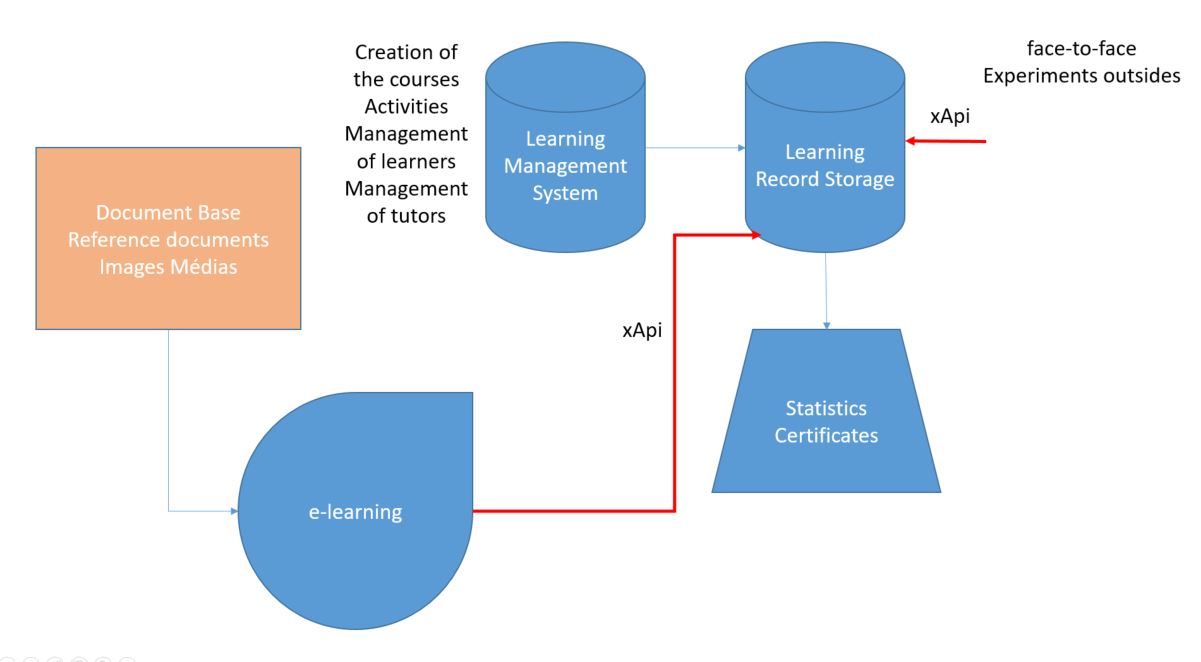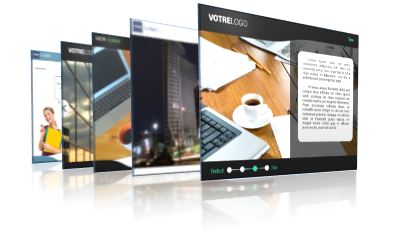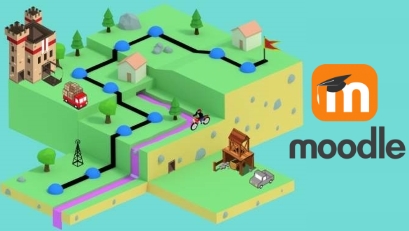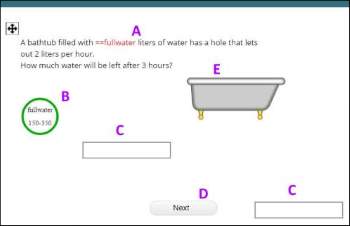The Experience API (also referred to as 'TIN CAN') is a learning interface specification that allows learning activity and contents to interact allowing recording and tracking of all types of learning observation.Different systems allow you to communicate this workflow in a secure way using the simple vocabulary of xapi.
It is designed to replace the legacy SCORM Standard and is created by ADL (Advanced Distributed Learning).
The results of learning experiences are saved in a Learning Record Store (LRS).
 The LRS controls the following functions:
The LRS controls the following functions:
- Authentication of authorised learner
- Validation of conformity to the xAPI Standard
- The memory of learning data
- Recovery and statistics of learning data
| Name | Techno | Licence | Certified | Date launch |
|---|---|---|---|---|
| ADL LRS | Python | Apache 2.0 | No | January, 2013 |
| GingerApp LRS | ? | Private | Yes | 2017 |
| Learning Locker | Node JS | GPL-3.0 | Yes | April, 2015 |
| Trax LRS | PHP 7 and > | Open Source | Yes | January, 2019 |
| Veracity Learning 0.1 | ? | Private | Yes | 2018 |
Technological choice ?
An LRS system is chosen for its functions, not for the technologies it uses.In an ecosystem logic where the LRS system is only one component, we know theoretically how to mix technologies.
However, the choice to use PHP 7 is a plus, especially in the Open Source community (Moodle community and Chamilo community in particular).
With MySQL or MariaDB, it guarantees a simplified installation, the server environments based on WAMP being the most common to date. For developers, PHP remains the most popular choice, which is important when it comes to deploying a project.








 If you choose to enter your e-mail address on this page,
you will receive our information regularly by email.
If you choose to enter your e-mail address on this page,
you will receive our information regularly by email.